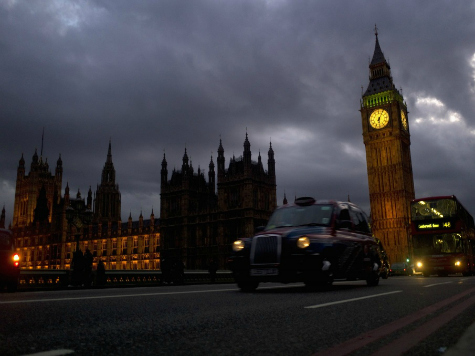
“Scottish independence means [a] huge black eye for [the] whole political establishment, especially Cameron and Miliband” tweeted Rupert Murdoch this weekend, clearly enjoying baiting both his perennial detractors on the left and the British Conservative leadership he has come to dislike.
The momentum is undoubtedly with the Yes campaign and the Scottish National Party’s leader Alex Salmond, following Sunday’s YouGov poll putting them two percentage points ahead of the unionists. If we were to wake up on September 19th to find Scotland had voted Yes, what would be the consequences for Westminster?
Immediately, David Cameron would face calls to resign. It is very difficult to see how he could resist them, even if his current position is that he will not stand down. He would be the Prime Minister who lost Scotland after 307 years of union, the Conservative and Unionist leader who destroyed one of the fundamental principles of his party. His authority would have vanished and his own backbenchers would be mutinous. In the longer-term, history would not look kindly upon him.
Would Cameron try to cling on? Who would take over if he goes? There has been a suggestion that in the event of a Yes vote Cameron might seek to delay the 2015 election until the following year, allowing the government an extra twelve months to address the constitutional crisis facing the country. The introduction of fixed-term parliaments means this does seem unlikely; the real question facing the Prime Minister would be whether or not he steps down straight away.
That in turn means that party conference season suddenly becomes incendiary, bordering on farcical. Labour conference, scheduled to begin three days after the vote, would presumably descend into Ed Miliband getting knifed from all sides. It will have been Labour’s voters who decided it for Salmond, and after all, it wouldn’t be like Labour to unite and seize their moment to attack the Tories. What of Gordon Brown and Alistair Darling? The two men at the forefront of the No campaign would never be forgiven by their party. Labour would need a permanent shift to the right to win in England again.
If Labour conference is chaotic, what about the Tories? Should Cameron still be leader, their whole conference would be about his position, and those in the party who want him to go. If he has already gone it becomes a leadership contest, for party and for country. Who will be in charge until the election?
Last but not least, the Liberal Democrats have their conference at the beginning of October. In Glasgow. The comic potential here alone is enough to make you want Scotland to vote Yes.
In the face of this turmoil, could the coalition continue? Who will be Prime Minister? Might Miliband be invited into a temporary unity government while the settlement with Scotland is agreed?
Moving forward, what would actually happen with the 2015 election? There are currently 59 members of the Westminster parliament whose constituencies are in Scotland, including some of the most high profile members of the Labour and Liberal Democrat parties.
Salmond has declared Scottish Independence Day to be March 24th 2016, almost a full year after the election. Scottish constituents would need representatives in Westminster until then. Would the likes of Douglas Alexander, Jim Murphy and Danny Alexander be allowed to contest their seats again? Would new candidates stand in those seats where the incumbent MP has stood down? Following Independence Day, post-March 2016, would the Westminster parliament then be dissolved again by the next government to face another election, or would these Scottish MPs be allowed to continue to vote on British laws for four more years?
The size and number of these questions suggests anarchy would be the order of the day for the foreseeable post-independence future. What happens to Britain’s foreign policy, its welfare policy, its health policy, its energy policy? Not much, is probably the answer. It could hardly pass any new legislation in that time. And it is inconceivable that Britain would take part in major decisions on the world stage while it was negotiating with Scotland (not that it does anyway, some may argue).
Forget the national debt, Islamic State and Putin, there will only be one thing on the agenda for the British government.

COMMENTS
Please let us know if you're having issues with commenting.